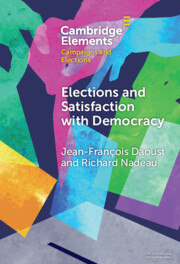The potential for participatory processes to address deficits in perceptions of legitimacy is strongly debated. This letter discusses how to evaluate the effects of participatory procedures. It argues that participatory processes should not be compared to normative ideals about how citizens should behave, but rather to the status quo of representative decision making. The authors use the example of winner–loser gaps in perceptions of fairness to illustrate the importance of evaluation frameworks, drawing on twelve experiments from the Netherlands and Sweden (total N = 5,352). The study shows that the choice of benchmarks matters substantially for the interpretation of process effects. When comparing participatory processes to the status quo of representative decision making, it finds higher fairness perceptions for a participatory process than for a representative process across all twelve experiments, even when the outcomes are unfavourable.


